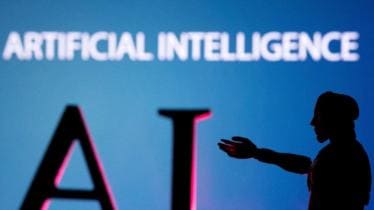Beyoncé’s Cowboy Carter album released in March has broken records as the first woman of colour to debut at No 1 on Billboard’s charts. Even across streaming platforms, it has earned the title of most first-day streams of a country album by a female artiste on Amazon Music. Spotify said it became the platform’s “most-streamed album in a single day in 2024 so far”. And in the artiste’s own words it is “the best music ever made”.
During the launch, Beyonce also voiced an unexpected point of view – against the growing presence of AI in music. Beyonce’s stance on artificial intelligence (AI) is a backlash against AI-generated art that comes from the way this technology works. “The joy of creating music is that there are no rules,” she said.
“The more I see the world evolving the more I feel a deeper connection to purity. With artificial intelligence and digital filters and programming, I wanted to go back to real instruments, and I used very old ones. I didn’t want some layers of instruments like strings, especially guitars, and organs perfectly in tune. I kept some songs raw and leaned into folk. All the sounds were so organic and human, everyday things like the wind, snaps and even the sound of birds and chickens, the sounds of nature…”
Technology is a double-edged sword, and since AI-powered music can generate music, emulate artistes’ vocals and replace artistes’ jobs, it has become a major concern for many musicians. Over 200 musicians from various genres and generations have come together to appeal to technology firms regarding generative AI’s role in music production. Billie Eilish and representatives of Frank Sinatra’s estate have allied under the Artist Rights Alliance banner to urge the ethical application of AI in music, besides Nicki Minaj, Peter Frampton, REM, Sam Smith, Jon Bon Jovi, Pearl Jam, Katy Perry, Elvis Costello, Sheryl Crow, and the estate of Bob Marley have felt the urgent desire to share their thoughts on the use of AI and the future of music. The aim of the Washington-based advocacy group, Artist Rights Alliance, stresses on the importance of preserving human creativity amidst technological advancements.
So will music have a human touch or be just a product of machines? The problem lies in the misuse of technology. AI can take an artistes’ work, distort it into something else, and release without payment or due credit for their contributions. Many AI companies use copyrighted artworks without consent to create music with AI models.
The musicians say they won’t go down without a fight. They have sent an open letter aimed at AI firms, tech companies, and digital platforms, and warned them against their potential replacement.
The letter acknowledges the benefits technology like AI could potentially offer to the industry, suggesting a place in the music production process, but the technological advancement must not completely erode the role of humans who work for months on music and songs, the letter said.
AI has been used to finish German composer Ludwig van Beethoven’s 10th Symphony, his last and unfinished symphony that could not be completed due to his worsening health and death. It was completed in 2021, brought together by German telecom giant Telekom with the help of AI and a team of international musicologists and experts.
The symphony is released on BMG releases titled Beethoven X – The AI Project. This year, a song using AI to simulate artistes Drake and The Weekend went viral on social media but was removed from all streaming services. Companies like Madverse, a global artistes service platform, say AI can elevate artistic expression.
“Through careful innovation to supporting artistes, we create an environment where creativity can flourish without limits, paving the way for a truly transformative music ecosystem,” says Rohan Nesho Jain, founder, Madverse.
“Our recent AI tool launches like AI Mastering and AI Art Cover Generation show commitment to supporting artistes’ interests. These tools aim to make the creative process easier, giving independent musicians affordable and efficient ways to improve their sound and visuals. By using AI responsibly, we want to bridge gaps in resources and expertise, helping artistes thrive in a competitive industry,” says Jain.
